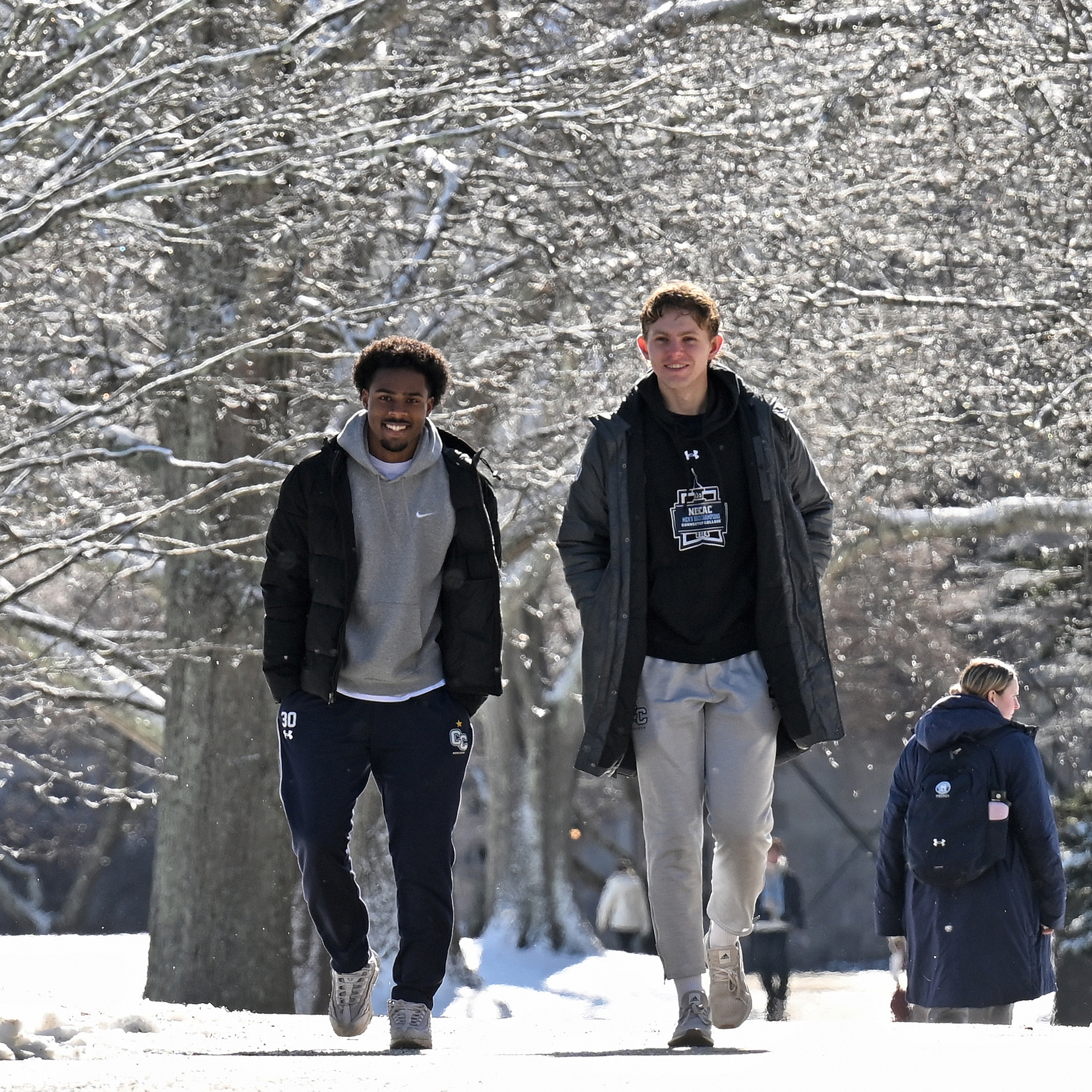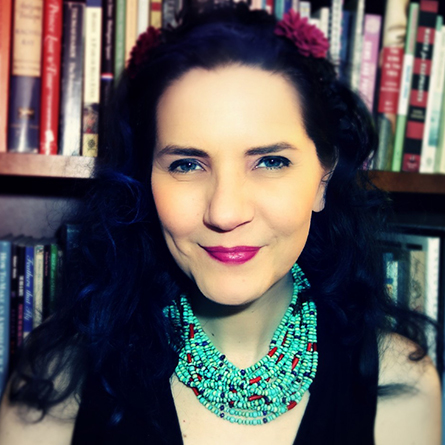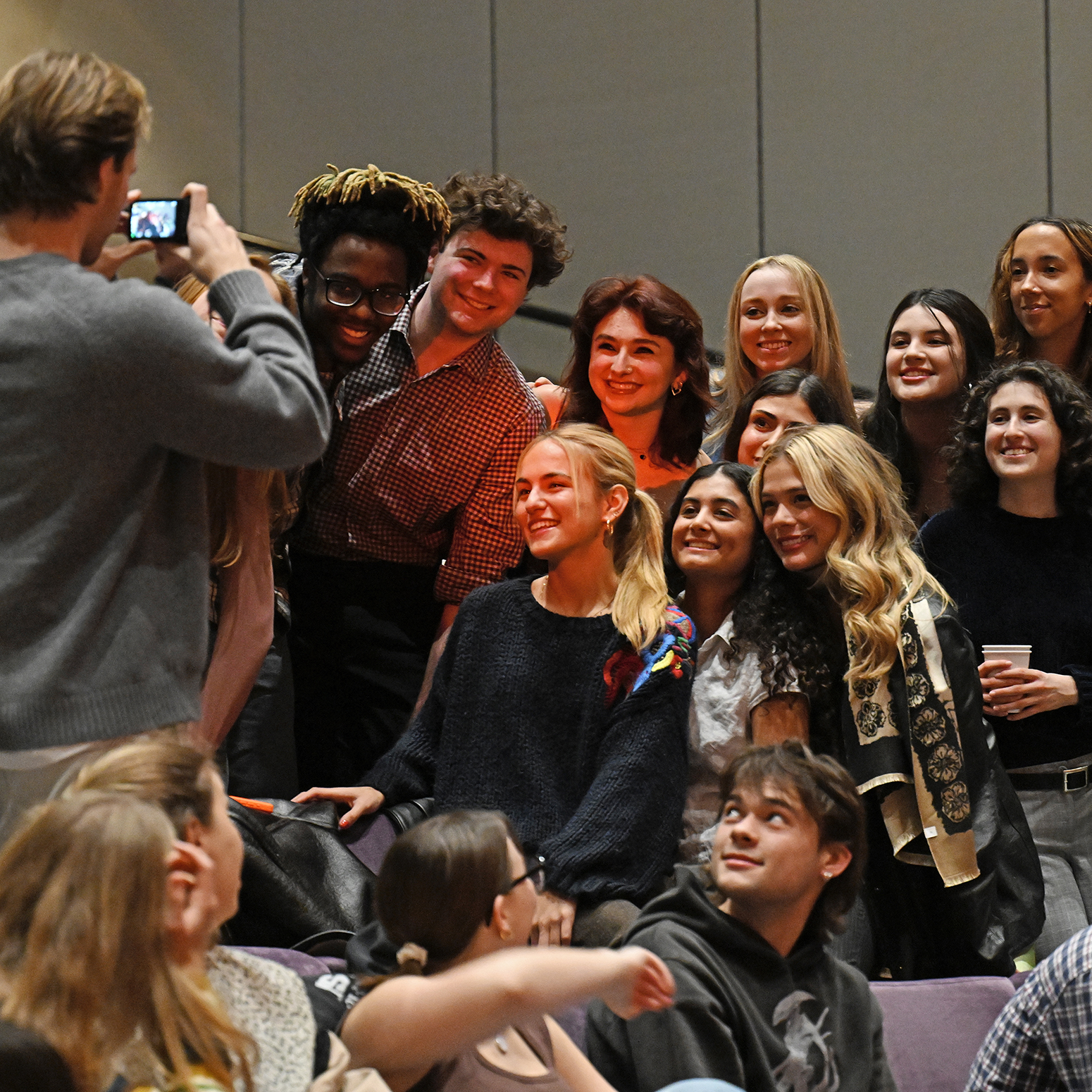
12 Lives
Award-winning author Hannah Tinti '94 visits campus

Celebrated author Hannah Tinti ’94 told Conn students to gravitate toward good writers.
In a round-table conversation, Tinti, along with Professor of English and Writer-in-Residence Blanche Boyd, offered advice on how to approach the creative challenges of being a professional writer, as well as tips for navigating the perils of the publishing industry.
“You can catch good writing like a cold,” Tinti told the students. “Don’t be in competition with each other. Surround yourself with writers who are better than you are.”
Tinti’s first novel, The Good Thief, received the American Library Association’s Alex Award, won The Center for Fiction’s First Novel Prize, and was recognized as a Notable Book of the Year by The New York Times.
In 2002, Tinti co-founded the groundbreaking literary publication One Story, and is the executive editor. One Story allows both accomplished and unpublished writers to submit one short story. No author is ever published twice, so as to showcase as many writers as possible. She has also taught graduate-level creative writing courses at NYU and Columbia University, where she has passed along much of what she learned from Boyd more than two decades ago when she signed up for her first writing course on a whim.
“This woman right here changed my life,” Tinti said, gesturing toward Boyd.
“I wouldn’t be a writer if I hadn’t taken Blanche’s class. I started out as a biology major. I came to Conn thinking I wanted to be the next Jacques Cousteau, but Blanche made writing seem like the coolest thing you could possibly do with your life.”
Tinti and Boyd both emphasized the importance of realizing that rejection is often unavoidable even for the most gifted writers, and that a willingness to fail, or even suffer humiliation, is a shared quality among all successful writers.
“Writing fiction is incredibly self-exposing,” Boyd acknowledged. “But it’s worth it, because when you write something that people like, there’s no feeling like it. Ninety-five percent of the time, if you’re writing about something that interests you, it’ll be interesting to other people. That other five percent of the time you’ll make a fool of yourself. But you have to be willing to do that.”
Tinti’s latest novel, The Twelve Lives of Samuel Hawley, was released last month, and has been optioned for a film adaptation by director Matt Reeves (Let Me In).
Explaining that some familiarity with the technical aspects of the publishing industry is a valuable asset for a writer, Tinti said that some of the most useful skills she has developed over the years have come from being an editor and working on the agency side, sifting through the slush pile of manuscripts and learning what not to do as a writer.
“My day job has always been in publishing, which has allowed me to work with editors and see how they work with other writers to shape and polish their pieces,” Tinti said. “Early on I was able to watch every stage of that process and track the changes in different drafts of a manuscript, and that taught me the technical side of things.”
As technology has transformed the media and publishing landscapes, it has become easier for this generation of writers to find an audience, Tinti explained. This shift has softened what has traditionally been a competitive literary culture, creating in its place a sense of community and support among younger and aspiring writers.
“I like to compare it to mountaineering,” Tinti said. “You’re all tied together climbing up a mountain. One person takes a step up and yanks everybody else with them.”
April 18, 2017
